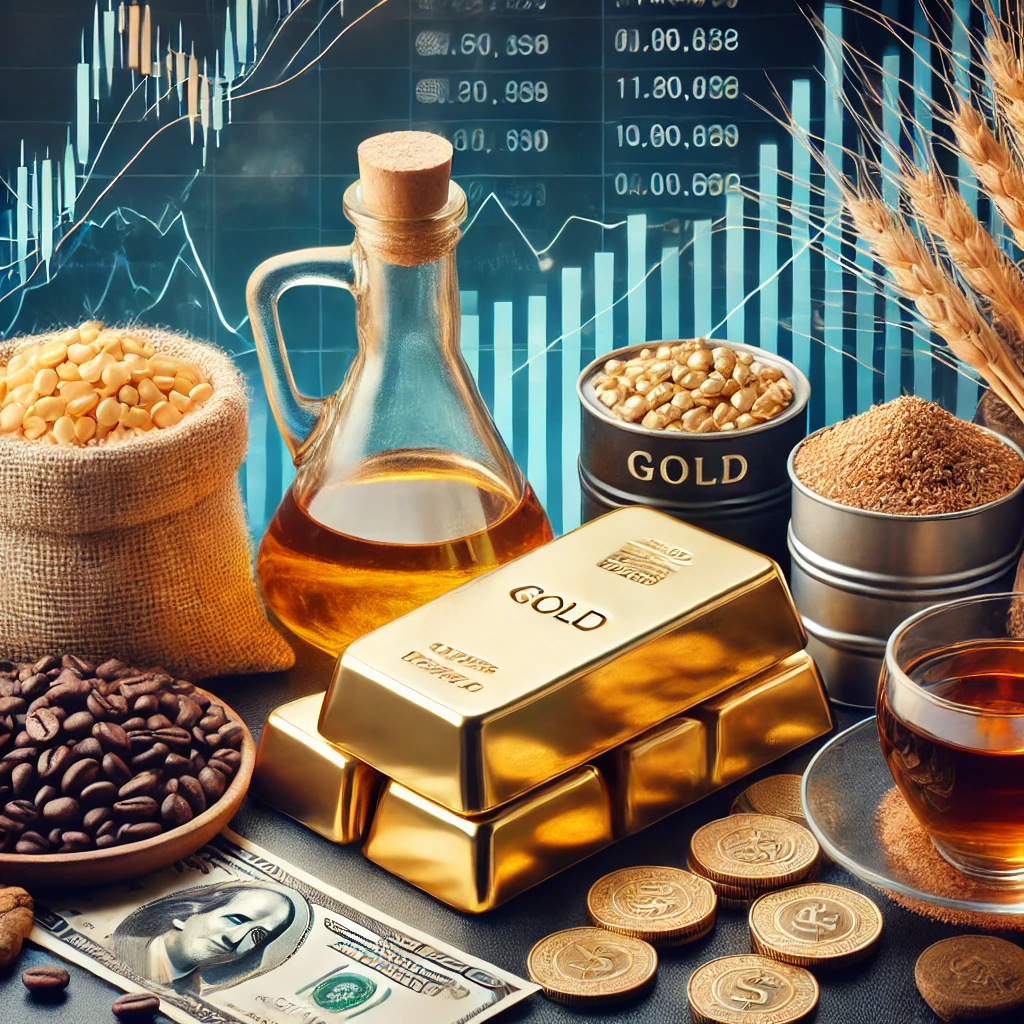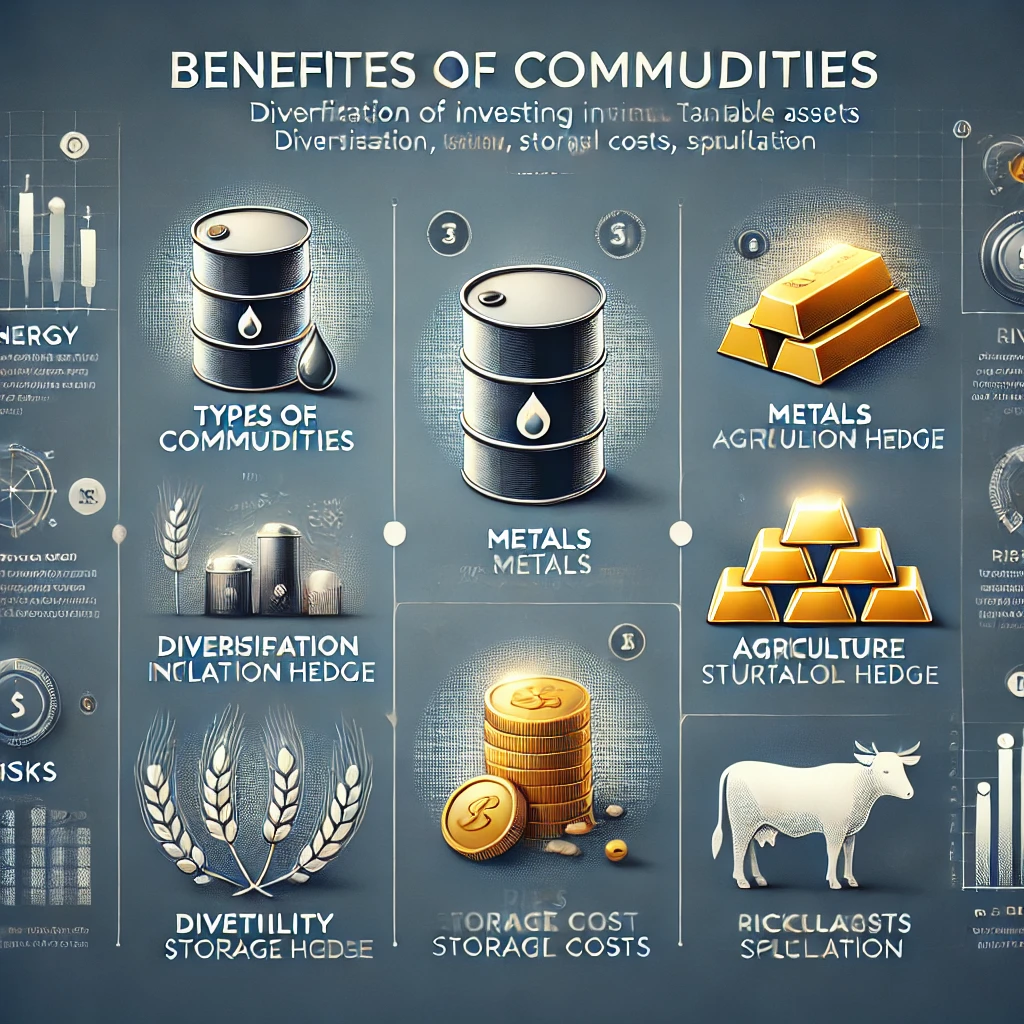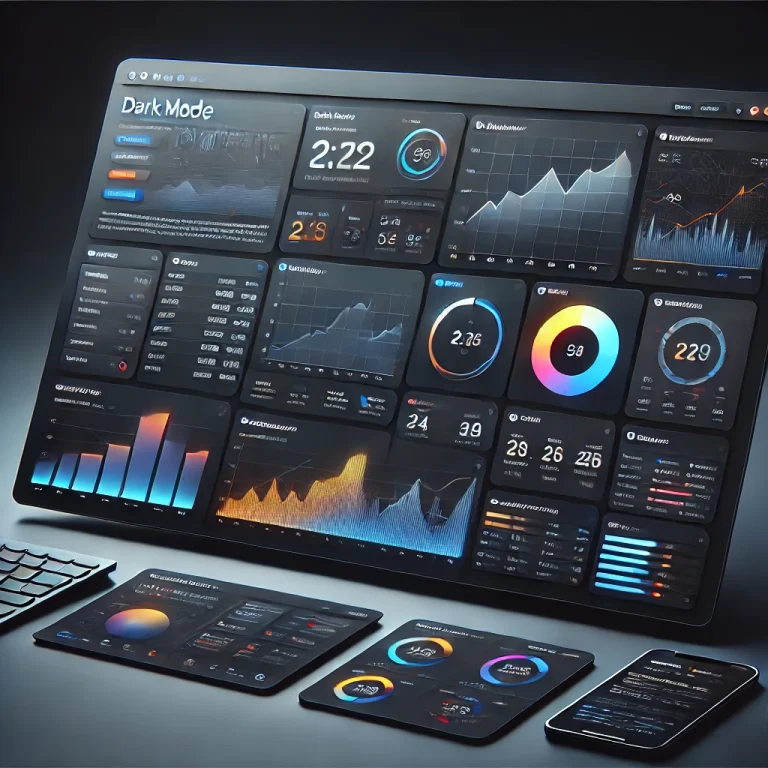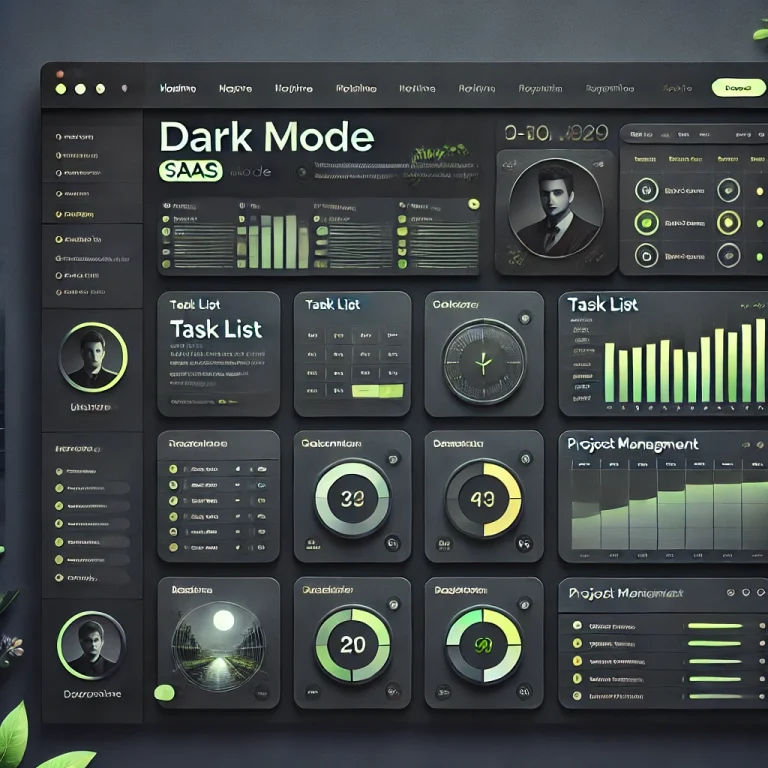Commodities: The Essential Guide to Understanding and Investing
Table of Contents
- What are Commodities?
- Types of Commodities
- Energy Commodities
- Metals
- Agricultural Commodities
- Why Invest in Commodities?
- How to Invest in Commodities
- Direct Investment
- Commodity ETFs and Mutual Funds
- Futures Contracts
- Commodity Stocks
- Benefits of Commodity Investment
- Risks of Commodity Investment
- Factors Influencing Commodity Prices
- Tips for Beginner Commodity Investors
- FAQs About Commodities
- Conclusion
What are Commodities?
Commodities are raw materials or primary agricultural products that can be bought and sold. They are the building blocks of the global economy, used in industries ranging from energy production to food processing. Commodities are broadly divided into two categories: hard commodities and soft commodities.
- Hard Commodities: Natural resources like oil, gold, and silver that are mined or extracted.
- Soft Commodities: Agricultural products like wheat, coffee, and cotton that are grown or harvested.
Understanding commodities is essential for anyone looking to diversify their investment portfolio or explore alternative markets.
Types of Commodities
Commodities are classified into several categories based on their use and origin. Here’s a detailed breakdown:
Energy Commodities
Energy commodities are essential for powering industries, homes, and vehicles. Common examples include:
- Crude Oil: The most traded energy commodity, used to produce gasoline, diesel, and jet fuel.
- Natural Gas: Critical for heating and electricity generation.
- Coal: A key fuel for power plants, though its use is declining in favor of cleaner alternatives.
Metals
Metals are valuable for construction, manufacturing, and investment purposes:
- Precious Metals: Gold, silver, and platinum are popular for investment and jewelry.
- Base Metals: Copper, aluminum, and nickel are essential in construction and industrial applications.
Agricultural Commodities
Agricultural commodities are essential for food and raw materials:
- Grains: Wheat, corn, and soybeans are staples in global diets.
- Livestock: Cattle and hogs are critical to the meat industry.
- Soft Commodities: Coffee, sugar, and cotton fall under this category.
Why Invest in Commodities?
Investing in commodities offers several benefits, making them an attractive option for investors:
- Portfolio Diversification: Commodities often move independently of stocks and bonds, reducing overall portfolio risk.
- Inflation Hedge: Commodity prices tend to rise during inflationary periods, protecting purchasing power.
- High Liquidity: Many commodities are traded on global exchanges, ensuring ample buying and selling opportunities.
- Tangible Assets: Unlike stocks, commodities represent physical goods with intrinsic value.
How to Invest in Commodities
There are multiple ways to invest in commodities, each suited to different investor preferences and risk tolerances.
1. Direct Investment
Investors can buy the physical commodity itself, such as gold bars or bags of coffee. While this provides tangible ownership, storage and transportation costs can be high.
2. Commodity ETFs and Mutual Funds
Exchange-traded funds (ETFs) and mutual funds provide exposure to commodities without the need for direct ownership. These financial products are diversified and professionally managed.
3. Futures Contracts
Futures allow investors to buy or sell a commodity at a predetermined price on a future date. They are ideal for experienced traders seeking high leverage but carry significant risks.
4. Commodity Stocks
Invest in companies involved in commodity production, such as mining or oil drilling firms. While less direct, stock investments benefit from company profits and dividends.
Benefits of Commodity Investment
1. Diversification
Commodities add variety to investment portfolios, balancing risk when other assets underperform.
2. Inflation Protection
Rising commodity prices during inflation help maintain the purchasing power of investments.
3. Global Demand
As economies grow, so does the demand for commodities, offering steady long-term opportunities.
4. High Returns Potential
Price volatility can lead to significant short-term gains for savvy investors.

Risks of Commodity Investment
While commodities offer numerous benefits, they also come with risks:
- Price Volatility: Commodities are highly sensitive to supply-demand dynamics and geopolitical events.
- Market Speculation: Futures trading often involves speculation, which can lead to significant losses.
- Storage and Transport Costs: Physical commodities incur expenses that reduce profitability.
- Environmental and Regulatory Issues: Policies and natural disasters can disrupt commodity markets.
Factors Influencing Commodity Prices
Understanding the factors affecting commodity prices is crucial for making informed investment decisions:
- Supply and Demand: Imbalances directly impact prices.
- Geopolitical Events: Conflicts and trade restrictions disrupt supply chains.
- Weather Conditions: Agricultural commodities are particularly sensitive to climate changes.
- Currency Fluctuations: A weaker dollar often leads to higher commodity prices.
- Economic Indicators: Growth in industrial production increases demand for raw materials.
Tips for Beginner Commodity Investors
1. Start Small
Begin with a manageable investment and gradually expand as you gain experience.
2. Research Thoroughly
Understand the commodity’s market, historical trends, and price drivers.
3. Diversify
Avoid putting all your money into one commodity; spread investments across different categories.
4. Use Risk Management Strategies
Set stop-loss orders and avoid over-leveraging in futures contracts.
5. Stay Updated
Monitor market news and reports to keep track of price movements and market sentiment.
FAQs About Commodities
1. What are the most popular commodities for investment?
Gold, crude oil, and agricultural products like wheat and corn are popular choices.
2. Are commodities a safe investment?
While they offer diversification and inflation protection, commodities are volatile and not risk-free.
3. Can beginners invest in commodities?
Yes, beginners can start with ETFs or mutual funds, which provide low-risk exposure to commodities.
4. What is the best time to invest in commodities?
The best time depends on market conditions, such as inflation trends and global demand.
5. How much should I invest in commodities?
Financial experts recommend allocating 5-15% of your portfolio to commodities, depending on your risk tolerance.
How Commodities Drive the Global Economy
Commodities play a pivotal role in the global economy, serving as the foundation for industries and everyday life. From fueling transportation to feeding the world, their impact is far-reaching. Understanding how commodities influence economic activity can provide valuable insights for investors.
1. Industrial Growth
- Energy Commodities: Crude oil and natural gas power industries, from manufacturing to logistics.
- Metals: Copper, aluminum, and steel are essential in construction, electronics, and automotive sectors.
2. Agricultural Development
- Food Security: Commodities like wheat, rice, and corn form the basis of global food supply.
- Trade Balance: Exporting agricultural commodities boosts economies of producing nations.
3. Innovation and Technology
- Rare Earth Metals: Critical for high-tech devices like smartphones, wind turbines, and electric vehicles.
- Emerging Markets: Investments in mining and agriculture stimulate growth in developing regions.
Emerging Trends in Commodities
The commodities market is constantly evolving, influenced by technological advancements, environmental concerns, and shifting consumer preferences. Here are the top trends shaping the future:
1. Renewable Energy Commodities
- The transition to clean energy is increasing demand for lithium, cobalt, and nickel, essential for batteries and renewable technology.
- Biofuels like ethanol are gaining traction as sustainable energy sources.
2. Sustainable Agriculture
- Organic and non-GMO commodities are becoming popular due to growing health and environmental awareness.
- Agri-tech innovations like precision farming enhance productivity and sustainability.
3. Digital Commodities
- Cryptocurrencies like Bitcoin are considered a new class of commodities, traded on digital platforms.
- Blockchain technology is improving transparency and efficiency in commodity trading.
4. ESG Investing
- Environmental, social, and governance (ESG) criteria are driving investments in commodities that align with ethical and sustainable practices.
Top Tools for Commodity Investors
To succeed in the commodities market, leveraging the right tools is essential. Here are some must-have resources:
1. Commodity Trading Platforms
- Popular Choices: Interactive Brokers, TD Ameritrade, and Robinhood offer user-friendly platforms for trading commodities.
2. Market Analysis Tools
- Bloomberg Terminal: Provides real-time data and in-depth market analysis.
- Refinitiv Eikon: A professional tool for tracking commodity prices and trends.
3. News and Insights
- Websites like CNBC, Reuters, and Commodity HQ deliver the latest market updates and expert opinions.
4. Investment Apps
- EToro: Allows you to invest in commodity ETFs and stocks with a social trading feature.
- Wealthfront: Offers automated portfolio management with commodity exposure options.

Building Authority in Commodities Investment
To establish yourself as a knowledgeable commodity investor, focus on building expertise and leveraging reliable sources of information. Here’s how to gain authority in this niche:
1. Stay Educated
- Enroll in courses like “Commodity Futures and Options” offered by Coursera or specialized training by the Chicago Mercantile Exchange (CME).
2. Network with Experts
- Join commodity trading forums, attend industry webinars, and connect with seasoned investors.
3. Monitor Global Trends
- Keep an eye on geopolitical events, climate changes, and economic policies that affect commodity prices.
4. Share Your Knowledge
- Write blogs, create videos, or publish research to contribute to the commodities investment community.
The Future of Commodities
As the world grapples with challenges like climate change and resource scarcity, commodities are poised to play an even more critical role. Key areas to watch include:
- Technological Integration: AI and blockchain transforming commodity trading.
- Sustainability Initiatives: Increased focus on renewable and eco-friendly commodities.
- Global Trade Shifts: Evolving trade agreements and tariffs influencing commodity flows.
Key Takeaways
Commodities offer a wealth of opportunities for diversification, growth, and stability in investment portfolios. Whether you’re a beginner exploring ETFs or an experienced trader navigating futures, understanding the intricacies of the commodities market is essential for long-term success.
- Start Small: Build confidence with manageable investments.
- Stay Informed: Leverage tools, courses, and expert insights.
- Diversify: Balance risks with a mix of commodities across sectors.
By mastering the fundamentals and staying ahead of trends, you can harness the power of commodities to achieve your financial goals. The time to invest in your commodities knowledge is now!
Commodities
Commodities are a vital part of the global economy and a valuable addition to any investment portfolio. They offer diversification, inflation protection, and the potential for significant returns. However, they also come with risks like volatility and market speculation. By understanding the types of commodities, investment methods, and market factors, you can make informed decisions and build a robust investment strategy.
Start your commodities journey today, and leverage the power of tangible assets to secure your financial future!
1. What are commodities?
Commodities are basic goods or raw materials that are interchangeable with others of the same type and are used in commerce. Examples include oil, gold, wheat, and coffee.
2. What are the types of commodities?
Commodities are broadly categorized into:
- Energy Commodities: Oil, natural gas, coal.
- Metals: Precious metals like gold and silver, and industrial metals like copper and aluminum.
- Agricultural Commodities: Wheat, corn, coffee, sugar.
- Livestock: Cattle, hogs.
3. How can I invest in commodities?
You can invest in commodities through:
- Direct purchase of the physical commodity.
- Futures contracts.
- Commodity ETFs (Exchange-Traded Funds) and mutual funds.
- Stocks of companies involved in commodity production.
- Commodity-focused index funds.
4. Are commodities a good investment?
Commodities can be a good investment for:
- Diversification: They behave differently from stocks and bonds.
- Inflation Hedge: Prices often rise with inflation.
- Global Demand: Driven by economic growth.
However, they can be volatile and carry risks like price fluctuations and market speculation.
5. What influences commodity prices?
The main factors include:
- Supply and demand dynamics.
- Geopolitical events.
- Weather and natural disasters.
- Economic indicators.
- Currency fluctuations, especially the US dollar.
6. What are the risks of investing in commodities?
- Price volatility.
- Speculation-driven markets.
- Storage and transportation costs (for physical commodities).
- Regulatory and environmental risks.
7. Can beginners invest in commodities?
Yes, beginners can start with:
- Commodity ETFs or mutual funds for diversified exposure.
- Stocks of commodity-producing companies.
- Avoid futures contracts initially due to their complexity and risk.
8. What is a futures contract?
A futures contract is an agreement to buy or sell a commodity at a specific price on a predetermined future date. It’s commonly used by traders to speculate on price movements or hedge against price changes.
9. How are commodities different from stocks?
- Nature: Commodities are physical goods, while stocks represent ownership in a company.
- Volatility: Commodities tend to be more volatile due to external factors like weather and geopolitical events.
- Returns: Stocks offer dividends, while commodities do not generate income.
10. How do I get started in commodity trading?
- Research: Understand the commodity market and price influencers.
- Choose a Platform: Select a trading platform or broker that offers commodity trading.
- Start Small: Invest small amounts and gradually increase as you gain experience.
- Monitor Trends: Keep an eye on market news and price movements.
11. What is the best time to invest in commodities?
The timing depends on:
- Market Cycles: Commodities perform well during inflationary periods or economic growth.
- Seasonality: Agricultural commodities may have seasonal price patterns.
12. Do I need a lot of money to invest in commodities?
Not necessarily. You can start with low-cost options like:
- Commodity ETFs.
- Fractional investments in precious metals.
- Mutual funds.
13. Are commodities affected by inflation?
Yes, commodities often serve as an inflation hedge because their prices typically rise during inflationary periods, preserving purchasing power.

14. What are the most traded commodities?
The most traded commodities globally include:
- Crude oil.
- Gold.
- Natural gas.
- Coffee.
- Corn and wheat.
15. What tools or platforms can I use for commodity trading?
- Platforms: Interactive Brokers, TD Ameritrade, Robinhood.
- Apps: eToro, Plus500.
- Market Analysis Tools: Bloomberg Terminal, Refinitiv Eikon.
16. How do geopolitical events impact commodities?
Geopolitical events such as wars, trade sanctions, or political instability can disrupt supply chains, causing commodity prices to fluctuate significantly.
17. What is the role of the US dollar in commodity pricing?
Most commodities are priced in US dollars. A weaker dollar makes commodities cheaper for foreign buyers, potentially driving up demand and prices.
18. What are ESG commodities?
ESG (Environmental, Social, and Governance) commodities refer to those produced sustainably, aligning with ethical and environmental standards. Examples include renewable energy commodities and organic agricultural products.
19. Can commodities lose all their value?
While commodities can experience significant price drops, they rarely lose all their value since they are essential raw materials.
20. How do I stay updated on commodity markets?
- Follow financial news platforms like Bloomberg, Reuters, or CNBC.
- Use tools like TradingView or commodity-specific apps.
- Subscribe to commodity market newsletters.
A Short Guide to Investing in Commodities
Investing in commodities is an excellent way to diversify your portfolio, hedge against inflation, and take advantage of global market dynamics. Here’s a detailed yet concise guide to help you get started.
1. What Are Commodities?
Commodities are raw materials or primary products that are traded globally. They are divided into:
- Energy Commodities: Oil, natural gas, coal.
- Metals: Gold, silver, copper, aluminum.
- Agricultural Commodities: Wheat, coffee, corn, sugar.
- Livestock: Cattle, hogs.
2. Why Invest in Commodities?
- Portfolio Diversification: Commodities often move differently from stocks and bonds.
- Inflation Hedge: Prices tend to rise with inflation.
- Global Demand: Increased demand as economies grow.
3. Ways to Invest in Commodities
- Physical Commodities: Directly buying gold, silver, or other tangible assets.
- Commodity ETFs/Mutual Funds: Low-cost, diversified exposure to commodity markets.
- Futures Contracts: Agreements to buy/sell commodities at a set price on a future date (high-risk, high-reward).
- Stocks of Commodity Companies: Investing in mining, oil drilling, or agricultural firms.
- Commodity Index Funds: Tracking the performance of a commodity index.
4. Steps to Get Started
Step 1: Research the Market
Understand the factors influencing commodity prices, such as:
- Supply and demand.
- Geopolitical events.
- Weather conditions.
- Currency fluctuations.
Step 2: Choose an Investment Type
Pick an investment method based on your risk tolerance and financial goals.
Step 3: Select a Platform
Use a reputable trading platform like TD Ameritrade, Interactive Brokers, or Robinhood for commodity ETFs, stocks, or futures.
Step 4: Diversify Your Investments
Spread your investments across multiple commodities to balance risk.
Step 5: Monitor Trends
Stay updated on commodity news, price changes, and market sentiment.
5. Benefits of Investing in Commodities
- Tangible Assets: Many commodities have intrinsic value.
- Economic Hedge: Protects against market downturns and inflation.
- High Liquidity: Easy to trade on global markets.
6. Risks to Consider
- Price Volatility: Rapid changes in supply-demand dynamics.
- Speculation: Futures trading can amplify losses.
- Storage Costs: For physical commodities, storing and insuring can be expensive.
7. Quick Tips for Success
- Start small and grow as you gain confidence.
- Use commodity ETFs to reduce complexity.
- Leverage stop-loss orders to manage risk.
- Avoid over-leveraging in futures contracts.
8. Best Resources for Beginners
- Books: “The Little Book That Still Beats the Market” by Joel Greenblatt.
- Courses: “Commodity Futures and Options” on Coursera.
- Apps: Simplifi, YNAB (for budgeting commodity investments).
Investing in Commodities
Investing in commodities can be a powerful way to diversify your portfolio and safeguard against inflation. With proper research, the right tools, and a clear strategy, you can make the most of this dynamic market. Start small, stay informed, and gradually grow your expertise!
Top Commodities to Invest In
Investing in commodities can be a powerful way to diversify your portfolio, hedge against inflation, and tap into global demand. Here are the best commodities to consider for investment, along with their unique characteristics and advantages:
1. Gold
- Why Invest?
- Acts as a safe-haven asset during economic uncertainty.
- Preserves value during inflationary periods.
- High liquidity in global markets.
- How to Invest: Physical gold (bars or coins), gold ETFs, or gold mining stocks.
2. Crude Oil
- Why Invest?
- Essential for global energy production and transportation.
- Price fluctuations create trading opportunities.
- High demand in both industrialized and developing nations.
- How to Invest: Oil futures, ETFs, or shares in oil exploration and production companies.
3. Natural Gas
- Why Invest?
- A cleaner alternative to coal, increasingly used for power generation.
- Seasonal demand spikes create profit opportunities.
- How to Invest: Natural gas ETFs, futures, or energy company stocks.
4. Silver
- Why Invest?
- Industrial uses in electronics, solar panels, and jewelry.
- Often viewed as a more affordable alternative to gold.
- How to Invest: Physical silver, silver ETFs, or shares in silver mining companies.
5. Copper
- Why Invest?
- Vital for construction, electrical wiring, and renewable energy projects.
- Rising demand from infrastructure development and electric vehicle production.
- How to Invest: Copper ETFs, futures, or stocks in copper mining companies.
6. Agricultural Commodities
- Popular Choices:
- Wheat: Essential for global food security.
- Corn: Used in food, ethanol production, and animal feed.
- Soybeans: A staple for livestock feed and cooking oil.
- Why Invest?
- Seasonal trends and weather conditions impact prices.
- Increasing demand due to population growth.
- How to Invest: Commodity ETFs or futures tied to specific crops.
7. Coffee
- Why Invest?
- One of the most traded agricultural commodities globally.
- High volatility offers opportunities for short-term traders.
- How to Invest: Coffee futures or ETFs.
8. Platinum
- Why Invest?
- Valuable for industrial use in automotive catalytic converters and jewelry.
- Limited supply compared to other precious metals.
- How to Invest: Physical platinum, ETFs, or mining stocks.
9. Lithium
- Why Invest?
- Crucial for electric vehicle batteries and renewable energy storage.
- Growing demand driven by the shift to sustainable energy.
- How to Invest: Stocks of lithium mining companies or ETFs focusing on battery technology.
10. Renewable Energy Commodities
- Examples: Ethanol, biofuels, and hydrogen.
- Why Invest?
- Increasing global focus on sustainability and reducing carbon emissions.
- Supported by government incentives and policies.
- How to Invest: ETFs or stocks in companies producing renewable energy commodities.
Factors to Consider When Choosing Commodities
- Market Trends: Analyze current demand and supply conditions.
- Volatility: Assess your risk tolerance for price fluctuations.
- Global Events: Monitor geopolitical and economic developments.
- Diversification: Avoid overexposure to a single commodity.
Conclusion
The best commodities to invest in depend on your financial goals, risk tolerance, and market understanding. Diversify across multiple commodities to balance risks and take advantage of global economic trends. Always stay informed about market conditions and consult with a financial advisor if needed.



